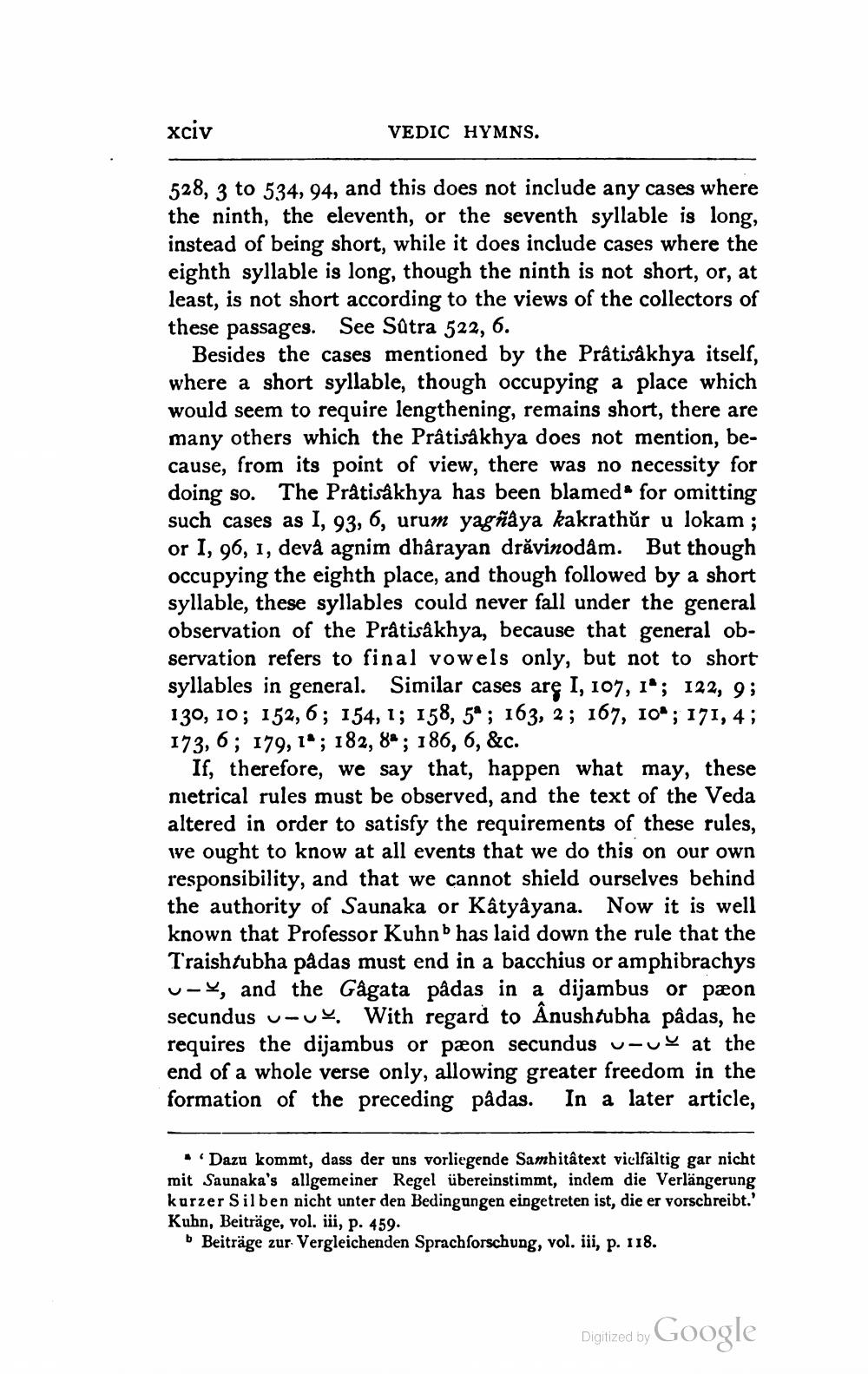________________
xciv
VEDIC HYMNS.
528, 3 to 534, 94, and this does not include any cases where the ninth, the eleventh, or the seventh syllable is long, instead of being short, while it does include cases where the eighth syllable is long, though the ninth is not short, or, at least, is not short according to the views of the collectors of these passages. See Satra 522, 6.
Besides the cases mentioned by the Prátisåkhya itself, where a short syllable, though occupying a place which would seem to require lengthening, remains short, there are many others which the Prâtisakhya does not mention, because, from its point of view, there was no necessity for doing so. The Prátisakhya has been blamed for omitting such cases as I, 93, 6, urum yagñaya kakrathịr u lokam; or I, 96, 1, deva agnim dhârayan drăvinodam. But though occupying the eighth place, and though followed by a short syllable, these syllables could never fall under the general observation of the Prátisåkhya, because that general observation refers to final vowels only, but not to short syllables in general. Similar cases are I, 107, 1*; 122, 9; 130, 10; 152,6; 154, 1; 158, 5* ; 163, 2; 167, 10*; 171, 4; 173,6; 179, 1*; 182, 84; 186, 6, &c.
If, therefore, we say that, happen what may, these metrical rules must be observed, and the text of the Veda altered in order to satisfy the requirements of these rules, we ought to know at all events that we do this on our own responsibility, and that we cannot shield ourselves behind the authority of Saunaka or Kâtyâyana. Now it is well known that Professor Kuhn has laid down the rule that the T'raishtubha pâdas must end in a bacchius or amphibrachys u-y, and the Gågata pâdas in a dijambus or pæon secundus u-uy With regard to Anushtubha pâdas, he requires the dijambus or pæon secundus u-uy at the end of a whole verse only, allowing greater freedom in the formation of the preceding pådas. In a later article,
• Dazu kommt, dass der uns vorliegende Samhitâtext vielfältig gar nicht mit Saunaka's allgemeiner Regel übereinstimmt, indem die Verlängerung kurzer Silben nicht unter den Bedingungen eingetreten ist, die er vorschreibt.' Kuhn, Beiträge, vol. iii, p. 459.
6 Beiträge zur Vergleichenden Sprachforschung, vol. iii, p. 118.
Digitized by Google




